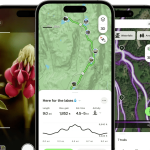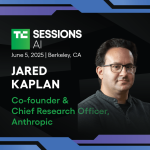The watchwords that are elongated to the point of being insignificant are as old as the technological industry itself. The upper current is “agent to” and its variants, as “agent”.
So, it is not surprising that nobody really knows what an artificial intelligence agent is. Even people with software engineering backgrounds who work for Andreessen Horowitz, one of the main risk capital companies that madly finance the startups of AI, say that there is no agreed definition.
Three Infrastructure investment partners A16Z – Guido Appenzeller, Matt Bornstein and Yoko Li – have tried to develop their definition as an agent during a recent Podcast episode called “What is a Ai Agent?”
For the perspective, A16z, supporter of Ai Calde companies such as Openi and Anysphere (cursor producer), is so Gung-I have on the opportunity of AI which is trying to increase a mega fucked by 20 billion dollars to invest even more heavily in the sector, the sources told the reuteri last month. In September, two other A16z VCs explained the excitement of the company, writing on its corporate blog: “We believe that each role of white collars will play an artificial intelligence co -pilot. Some of these roles will be completely automated with artificial intelligence agents”.
To collect the buzz, a continuum “of the startups ai is describing their products as agents, says Appenzeller.
“The simplest thing I heard to be called an agent is basically only a intelligent request on a sort of basic knowledge,” he said. This so -called agent asks a question from a human being, so he takes a “canned” answer, such as the support of the Help desk.
But lately, companies that produce agents or want to make them have described them as substitutes for human workers.
Techcrunch event
Berkeley, ca.
|
June 5th
Book now
To really do it, their artificial intelligence software should be “something close to AGI”, says Appenzeller, which means “must persist for long periods of time” and “must work independently on problems”.
Yet such a thing “does not work yet,” both he and them said.
The reality is that this nascent artificial intelligence agent was operating well was a surprisingly difficult journey, he told Techcrunch Jaspar Carmichael-Jack, CEO of the Ai Ai Ai Sale Artisan agent. Carmichael-Jack is still taking humans, despite the viral advertising campaign of his startup “stop taking humans”.
In order for artificial intelligence to become a true replacement of human workers, there are significant technical problems to be solved, such as the persistent long -term memory (and the costs associated with this) and trampling hallucinations. Because no company wants to hire an employee – human or artificial – who cannot remember a previous conversation and which also lies casually.
During the podcast, the A16z trio landed on a solid definition of what is possible today. As described by there, an AI agent is a reasoning, llm with several phases with a dynamic decision -making tree.
In other words, he said, an agent is not a bot who only makes a task when asked; It must also be able to make decisions on the activity and undertake the action independently, how to make a list of potential customers from a database, decide which and -mail and write the and -mail. Or write code and decide where to insert it.
As for the fact that agents could actually replace humans in the near future, all three VCs have agreed that they could be used to manage some tasks that humans perform now, just like automation has always done. But this can actually lead to companies that assume more human workers, no less, with the increase in productivity.
Bornstein said he could not imagine once – given the current state of the agents – when humans are not necessary. From “Our Trespolo in Silicon Valley”, the technological industry can “forget” that most people have jobs that require creativity and “thought”, he described. To replace humans with a bot, “I’m not sure it’s also theoretically possible,” he said.
However, this human replacement rhetoric – often made for marketing/business model and/or price reasons – is “a great reason for the confusion we are experiencing now”, says Bornstein.
The result is that if those who see all the most avant -garde uses of AI agents are skeptical about the most daring statements that companies of agents Ai are making today, probably also a good sign that the rest of us should be.



